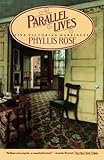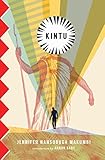In January of 2020 I was in Singapore, where my debut novel was a finalist for an award, then home in Bangkok, where I hugged my grandparents and gorged myself on green curry and som tam. Did I sense it was going to be a long time before I could return? There was talk of a virus coming out of China. I flew back to California with Meng Jin’s Little Gods in hand, my dear friend’s smart re-up of the immigration narrative, where a Chinese American protagonist goes to China to uncover the secrets of her brilliant mother’s past. In February my husband and I came down with pneumonia, which was perhaps covid, though we got negative results. Everything confusing and wonderful and difficult about the year would come to be foreboded in that rapid beginning.
I know from pregnancy and postpartum how much reading returns me to myself. When everything else drops away—friends, alcohol, feeling attractive, my ability to get myself to go for a walk, which entails a steep climb since I live “in the hills”—books hold me together. So when California declared a lockdown in early March, an essay by Joanna Biggs in the London Review of Books about Simone de Beauvoir sent me to The Mandarins, a long novel, a capacious tent, whose folds hid me for what I have come to think of as Pandemic One.
One–early days of silence and stillness, our family collapsing in on itself, people enemies, people contagion. I had three hours a day to myself in Pandemic One and when I used them to read or write, the silence became an arrow, became charged, became sacred, a ritual that built me a raft.
In The Mandarins French intellectuals face Europe after the Second World War. The grief, the ache of rebuilding. They wonder if they can make art or must they start newspapers, philosophize. A lesser writer than de Beauvoir would have set the novel when these writers were part of the French Resistance—so glamorous!—but her concern is after. What we pick up in the ruins, where we fail, where we find life again.
Because de Beauvoir wrote specifically about pieces by Albert Camus, I went and read The Misunderstanding, a play, and The Plague, a novel. Camus’s work wrestles with morality. American lefty writers tend to disavow such earnest concerns, as David Foster Wallace pointed out in his essay “Joseph Frank’s Dostoevsky”—but should we?
There is comfort in reading how others coped with catastrophe. I re-read A Writer’s Diary by Virginia Woolf, whose suicide tends to eclipse the fact that she lived and worked through most of two World Wars. Then, continuing with Victorians, Parallel Lives by Phyllis Rose, whose pages dispensed literary gossip and marriage advice. I was in my dream nail salon.
For my next book project, I read the Library of America’s edition of Elizabeth Bishop’s poems, prose, and letters, as well as Megan Marshall’s excellent biography of the poet. The Days of Abandonment by Elena Ferrante was another re-read. It’s a brutal, vital book. Then I fell into Natalia Ginzburg, re-reading The Little Virtues and encountering for the first time Family Lexicon, The Dry Heart, and Happiness, As Such–my favorite. I aspire to write with Ginzburg’s detachment but my draft came out tuned to Ferrante’s fury.
Then suddenly it was Pandemic Two. I realized that the abnormal had become normal just as that changed. My book debuted in Asia. I could not be there to see it on a bookshelf. Fire season arrived three months early to the West Coast. Like some nightmare Buddhist mental exercise, a world we thought small got smaller. Our toddler learned to say “go bag” and greet the small black suitcase that sat by the door as a friend. We practiced drills—who would grab the baby, who would grab the dog—and got back in the habit of daily air quality checks. I have asthma, and began reading, writing, and prepping lessons from a very hot bath that I would draw midday and leave full until evening, so I could continue to duck in and breathe that wet air. And we were lucky.
The last time I read Maxine Hong Kingston’s The Woman Warrior, I didn’t like it. Too many ghosts and self-important proclamations. But I had been thinking about Asian Americans and Asians from Asia, a divide I didn’t know what to do with, since I am half Asian, half American, a different configuration. I returned to Kingston from the bath. This time her voice sounded like my mother’s, struggling to fulfill the duties of the oldest child because alas for the family honor, she was born a girl. I had finally read the book at the right time.
We seem to justify a book’s importance by its thematic concerns, one more way society mimics the patriarchy’s crocodile mind, but I read two story collections that refused to pin themselves to geopolitical importance in order to get our attention. Last of Her Name by Mimi Lok ducked my grasping dichotomy between Asian and Asian American and ranged all over. It is funny, wry, tender, piercing. I can’t wait to teach it. A House Is A Body by Shruti Swamy was so very pleasurable that I lingered, not wanting the pages to finish and the pandemic to be waiting outside. Shruti’s book introduced me to pleasure activism without ever using those words. It felt in complete contrast to Will and Testament by Vigdis Hjorth, which is art hacked out of stone, traces of someone’s fingernails still on it.
I read Kintu by Jennifer Nansubuga Makumbi, in which, like Hjorth’s book, I was aware that I was eavesdropping on a story not written for me. It’s so healthy to do that sometimes–maybe a lot of the time. Makumbi’s novel is written in English, the colonizer’s language, about Uganda. It holds up even the colonizer’s rational way of knowing alongside an intuitive, what I call superstitious, one.
How the Man in Green Saved Pahang, and Possibly the World by Joshua Kam has an image of the Mouth, a Malaysian Minister whose greed encompasses the country, that has continued to stay with me through the US election. When I read State of Emergency by Jeremy Tiang I was astonished and reached out to him to say so, something I’m usually too shy to do. I want everyone who read Crazy Rich Asians to encounter Tiang’s and Kam’s Singapore and Malaysia.
To return to teaching in August I revisited bell hooks’ Teaching to Transgress, which is still my guide for how to create a classroom that doesn’t mimic the hierarchies of oppression. I’ve been working my way through The Source of Self-Regard by Toni Morrison, Frantumaglia by Elena Ferrante, and Nine Gates by Jane Hirschfield, all very brilliant, so I must read slowly. One thing I do when teaching is read opening poems as invocations. These collections have held space for me and my students in this turbulent year: Danez Smith’s Homie, Tracy K. Smith’s Life On Mars, Isako Isako by Mia Ayumi Malhotra, Directed By Desire by June Jordan, and A Nail the Evening Hangs On by Monica Sok, whose poetry recommendations animate much of my year.
A thousand blessings to Cathy Park Hong for writing Minor Feelings, which puts into words the dis-ease of life in America in a visibly Asian body. I hand it to family, friends, students. The same goes for How To Do Nothing by Jenny Odell, which understands that the attention economy is best unpacked with—of course–prolonged attention. Reading it made me feel like I had taken a swim in a pond.
I just finished Alexander Chee’s first novel Edinburgh. I held my breath the whole time I was reading it, which I did for William Faulkner’s “Pantaloon in Black,” a story I am teaching, but Edinburgh steps carefully around traumatizing the reader, and for that I admire it more.
Sometimes this year I have lost my grip on books and gone without reading for weeks at a time. Like falling from playground handlebars, I hit the ground to find 2020 still raging outside. Pandemic Two morphed into Pandemic Three, which had more choices, more negotiations, more loneliness. Eventually, we fled fire to the East Coast to live with my in-laws. There, I found my footing with Homeland Elegies, Ayad Akhtar’s talk-back to the dominant ways of America, and The Changeling by Kenzaburo Oe. I stayed with family on a farm in the country. Solitude grew again.
More from A Year in Reading 2020
Don’t miss: A Year in Reading 2019, 2018, 2017, 2016, 2015, 2014, 2013, 2012, 2011, 2010, 2009, 2008, 2007, 2006, 2005

























